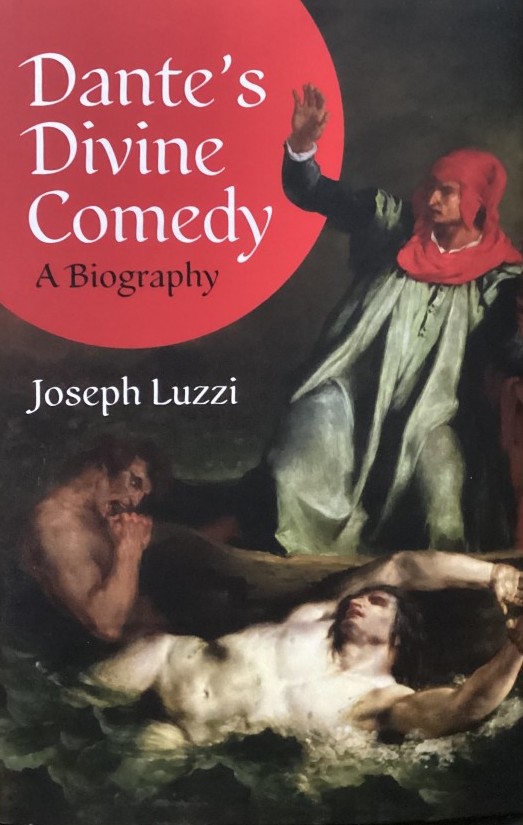Inspiring Older Readers
 posted on 08 Dec 2024
posted on 08 Dec 2024
Dante’s Divine Comedy: A Biography by Joseph Luzzi
I think you’d be hard-pushed to think of a literary classic whose reputation has taken such a roller-coaster ride of ups and downs since its appearance shortly before it’s author’s death in 1321. Joseph Luzzi has taken on the job of mapping this rise and fall and rise again of the Comedy’s profile and, in an admirably concise 200 pages or so, takes us from its first reception to its current status as a cultural and multi-media icon.
Dante Alighieri’s work was, from the first, a thing that prompts conflicting critical opinion and that, Luzzi explains, is built into the very nature of the subject matter, the unorthodoxy of its writing and the character of the author. The subject of the Comedy – explaining the structure of the afterlife by way of a guided tour through Hell (Inferno), Purgatory and Paradise – is, of course, a religious one but Dante, already in exile for his outspoken religious views, outraged more of the established church hierarchy by his use of the Comedy to launch unbridled attacks on several Popes.
His chosen medium, poetry, also raised eyebrows because rather than using the more formal structures of classical Latin, Dante wanted his work to be accessible to his fellow Tuscans and so wrote using the Tuscan dialect – which, of course, limited its reach and potential audience. Despite this The Comedy drew great admiration from another contemporary great of Italian literature, Boccaccio who declared it a work of genius. And this was the starting gun for quite a journey as far as Dante’s standing as a literary and theological figure was concerned.
Luzzi steers us expertly and very readably through the following centuries as detractors and admirers of The Comedy vie for dominance. I especially enjoyed the comparisons drawn with the work of John Milton and the subsequent decline of Dante’s work – almost to the point of extinction – when the Augustans of the late 17th and 18th centuries dismissed Dante’s vision as irrelevant. Always diligent in his research, Luzzi points to the extraordinary decline in the numbers of published editions of The Comedy over that period.
But it was the Romantics who revived the poem's fortunes when they found in Dante a model Romantic hero. But, Luzzi suggests, they were somewhat more interested in what the Comedy and its poet added to the cult of the Romantic Hero than in poem itself.
But it was the arrival of T.S. Eliot and the Modernists in the 20th century that seems to have confirmed Dante’s reputation and, I think, shapes the way we think of it today. Luzzi’s analysis of the impact of The Comedy on Joyce’s Ulysses was a special delight for me and I found myself surprised by the reach of Dante’s work when it came to influencing 20th century cinema.
I found this book an unexpected delight. For someone ill-versed in The Divine Comedy and it’s history, this is the perfect introduction – academically sound but eminently readable.
Available now from Princeton University Press, you will be able to get a copy from your local independent bookshop – who will be happy to order you a copy if they don’t have it on their shelves.
Terry Potter
December 2025